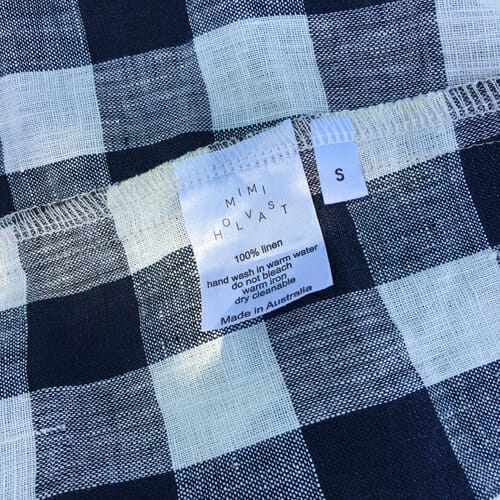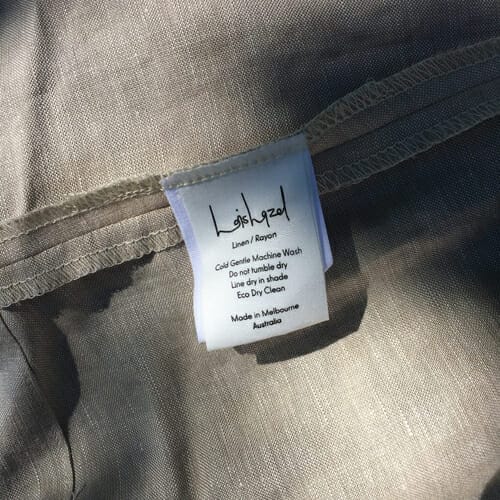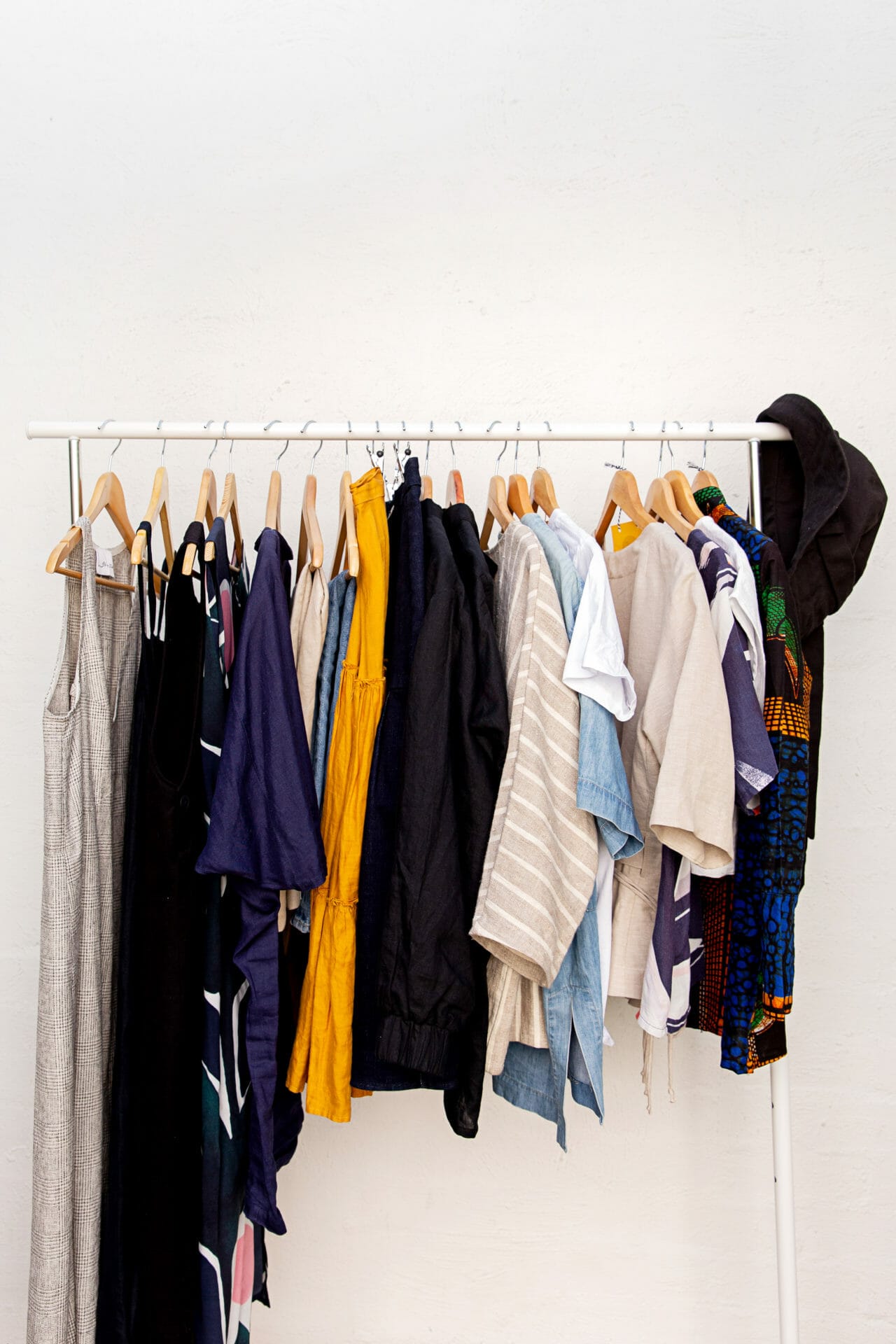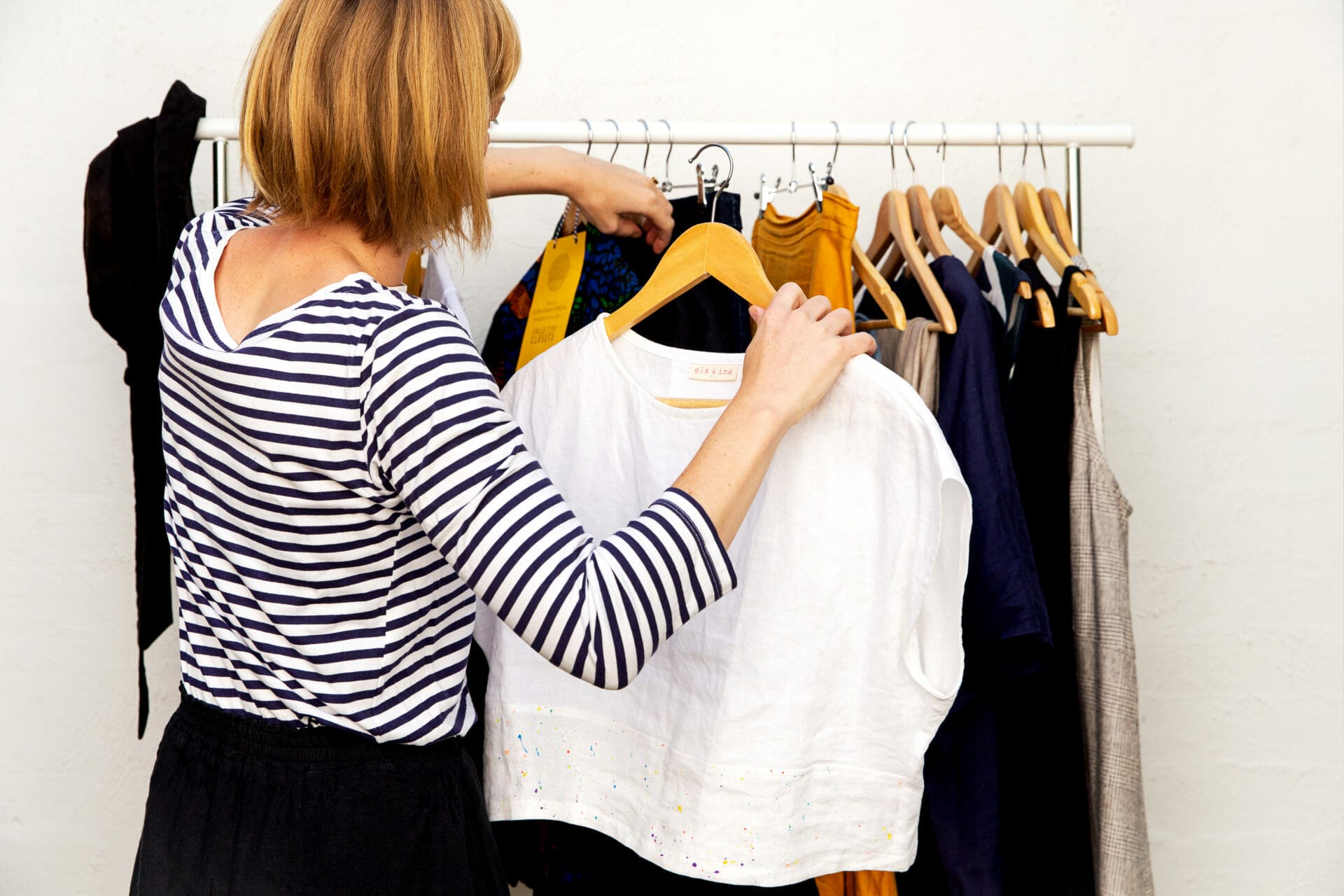What are the values?
There are many words that get tossed about when it comes to talking about fashion – ethical, sustainable, slow, green – and it is difficult to tell what they really mean. We use values on this website to help you search for designers you may be interested in. So what are these values and why are they important. Well basically no one designer or label is going to be able to be across everything so it can be great to shop your values.
Basically you need to identify the values that are most important to you and we recommend starting with one and then layering on more if that becomes an option. At this stage on Slow Wardrobe our Directory focuses on locally made for both Australia and New Zealand and we highlight local labels doing something a little different (and sometimes manufacturing overseas) in our Articles section.
Ethically made
Workers are paid a minimum wage, have safe working conditions and are treated right. These manufacturers should be accredited by a globally recognised body. When looking locally you can check out Ethical Clothing Australia.
Also don’t be afraid to ask questions about who made your clothes especially if you are interested in small local designers who may not at this stage have a form of accreditation. Chances are the designer made your clothes or they have a very close relationship with the people that do.
Locally made
Locally made is something that is very important to us here at Slow Wardrobe. Generally locally made gives better access to product knowledge, supporting your local community, and to be honest reducing your carbon footprint. Plus you have the added bonus of developing a personal relationship with the designer who is also potentially the maker. It is also important to maintain a demand for local businesses offering services to support Australian made labels, so buy local and keep the industry alive.


The most sustainable clothes are the clothes you already own and want to keep wearing.
Elizabeth L. Cline, The Conscious Closet
Made to Order
Made to order offers a service which only produces garments when a client purchases a garment. The made to order model reduces waste and offers an alternative to bulk production – garments can be altered to suit the client or fabric selected by the client. In a space where fast is the normal it can be so special to slow this process right down.
Minimal Waste
The amount of waste produced is thought about throughout the whole process so only a small amount of material ends up as waste or is sent to textile recyclers. Designers may use zero waste pattern cutting, only produce made to order, donate material scraps and make scrunchies.
There are also many small designers focused on using ‘deadstock’ fabric. Deadstock fabric is leftover fabric that would otherwise go to landfill or be destroyed. Small designers may use this as a way of accessing fabrics that they may otherwise be unable to afford due to minimum order requirements.
Social Enterprise
Brands that give back by helping the environment, offering training and/or employment opportunities to disadvantaged groups and communities, and use the majority of their profits to work towards achieving this.
Sustainable
Minimising the impact the product has on the environment both during the manufacturing process and for its life cycle. Designers will consider the materials they use such as organic fabrics, recycled fabrics, hemp, biodegradable materials, closed loop viscose, low impact and natural dyes. Designers may also offer services to the owners such as repairs and take back programs.
Brands may also consider how their stores or factories are powered, how their goods are transported or posted, and what kind of packing they use.
Transparent
Some designers are able to trace the piece of clothing from the maker right back to the raw materials. This is somewhat uncommon but being transparent is becoming more and more accessible. There are many designers now who are openly stating where everything used to make a piece of clothing is coming from – fabrics, fastenings, tags, threads. They may even go so far as breaking down the costs for you to show where the money you spend goes and where their running costs and profits fit in.
As an aside here you may like to look at transparent as being honest. I have found many local designers who welcome engagement with the client and are available to answer questions you may have. Ask them questions, send them an email and they will give you an honest answer. It may not always be the answer you want but enables you to build a trust with them.
Vegan
No animals – no leather, fur, feathers…..
So take a look around Slow Wardrobe and start thinking about which values are most important to you.


